‘Will The Circle Be Unbroken’ – How Nitty Gritty Dirt Band’s Album Broke Barriers
Nitty Gritty Dirt Band founding member John McEuen recalls the impact of the landmark album, more than 50 years after release.

It all started with a simple, if somewhat stammering, inquiry. In the spring of 1971, John McEuen, banjo and mandolin player for the Nitty Gritty Dirt Band, was driving the legendary banjoist Earl Scruggs back to his hotel after the Earl Scruggs Revue show in Colorado. McEuen had long admired the master banjoist and the feeling grew to be mutual. On their first meeting backstage at a Dirt Band show in Nashville, Scruggs told McEuen that he loved his playing on Scruggs’ instrumental “Randy Lynn Rag,” from the Dirt Band’s 1970 album Uncle Charlie & His Dog Teddy. As he drove, McEuen felt confident enough to ask his musical mentor a rather crucial question.
“Earl, I was wondering if, if you think you might, or would want to, uh, I mean, record a couple of songs with the Dirt Band?” McEuen recalled in his book, The Life I’ve Picked: A Banjo Player’s Nitty Gritty Journey. Not exactly his most eloquent moment, but McEuen remembered Scruggs’ immediate response: “I’d be proud to!” From that terse conversation, a lasting chapter in country music history would be conceived.
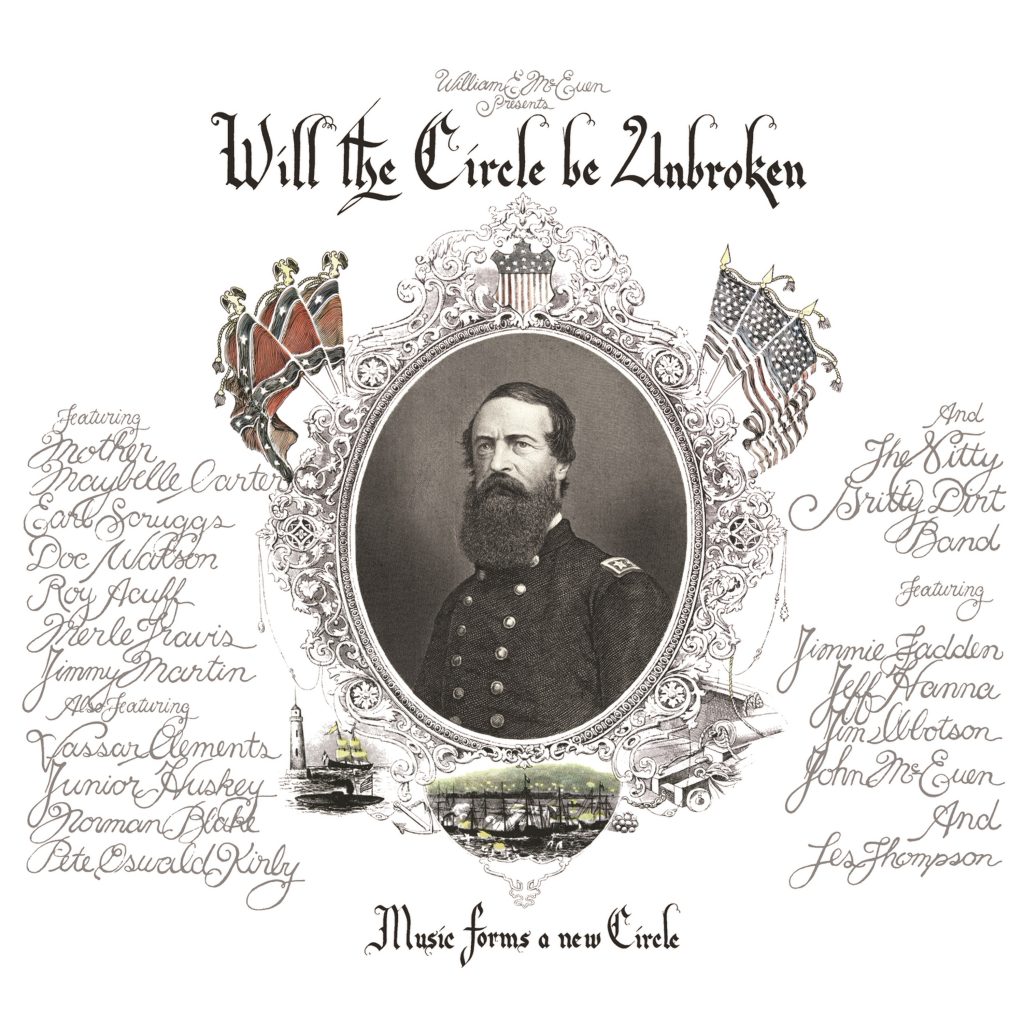
In August of 1971, Scruggs, along with fellow country and bluegrass legends like Roy Acuff, Jimmy Martin and Mother Maybelle Carter, gathered with the members of the Nitty Gritty Dirt Band at Woodland Studios in Nashville to record an album. Will the Circle Be Unbroken, as the album was later titled, brought together the youthful Nitty Gritty Dirt Band, a long-haired group that started in California, with the older generation. The Dirt Band members – McEuen, Jeff Hanna, Les Thompson, Jim Ibbotson and Jimmie Fadden – conceived the project in the fervent hope of exposing these legends to a young, music-buying audience raised on rock ‘n’ roll. They did not want the contributions of their heroes to be forgotten. The project proved an unprecedented uniting of young and old, at a time when the generations clashed over issues like the Vietnam War, the hippie counter-culture and American values.
John McEuen spoke with Sounds Like Nashville to share some recollections about the Circle sessions and detail the lasting impact of the album. “We had been playing colleges, and the kids would ask us about the banjo music. We found that a lot of the audience had never heard of Roy Acuff or Earl Scruggs or Doc Watson,” McEuen begins. “With our following, we thought that there would be some buyers for this album.”
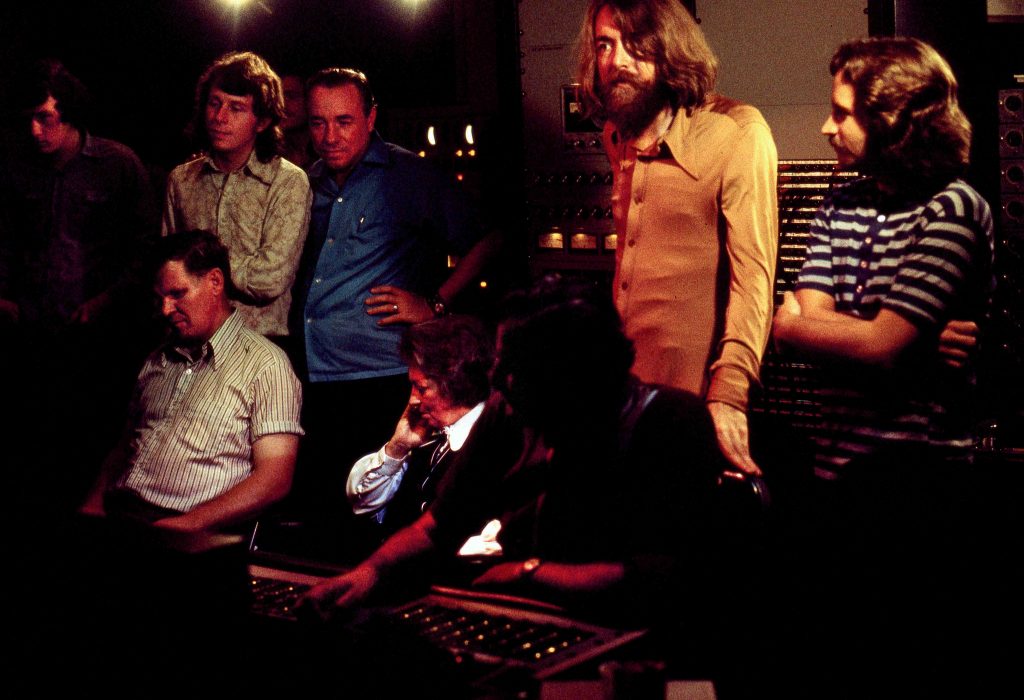
The success of the Dirt Band’s Uncle Charlie album, which featured the hit single “Mr. Bojangles,” helped convince the group’s somewhat reticent record label, United Artists, to approve the project. Earl Scruggs helped bring in such players as bluegrass guitarist and singer Doc Watson, Mother Maybelle Carter of the famed Carter Family, and others who were seminal influences on McEuen and his fellow members. McEuen’s brother Bill served as the album’s producer. “Everybody was excited and it all came together,” McEuen says.
As the band members would find out, the label wasn’t the only hesitant party. Roy Acuff, “The King of Country Music,” had expressed some serious concerns to a reporter before the sessions took place. Acuff wasn’t sure what he was getting himself into. He made a somewhat deferential reference to the Dirt Band, reportedly saying, “I don’t know if they’re old men or young boys.” He further described them as, “A bunch of long-haired West Coast boys.” McEuen himself recalls that he wondered whether Acuff would even show up. Acuff did arrive on the final session day, though still a bit cautious about this whole venture. In his book, McEuen writes, “Acuff walked into the studio not looking happy and authoritatively said, ‘Let me hear this music you boys have been recording.’ Bill played four cuts for our Acuff ‘test.’ The confident, stern-faced King Roy sat silently, formulating his opinion.” Acuff gave his enthusiastic approval, and cheers erupted in the control room. For the album, Acuff sang lead vocals on “Wreck on the Highway,” Hank Williams’ country gospel classic “I Saw the Light,” and others.
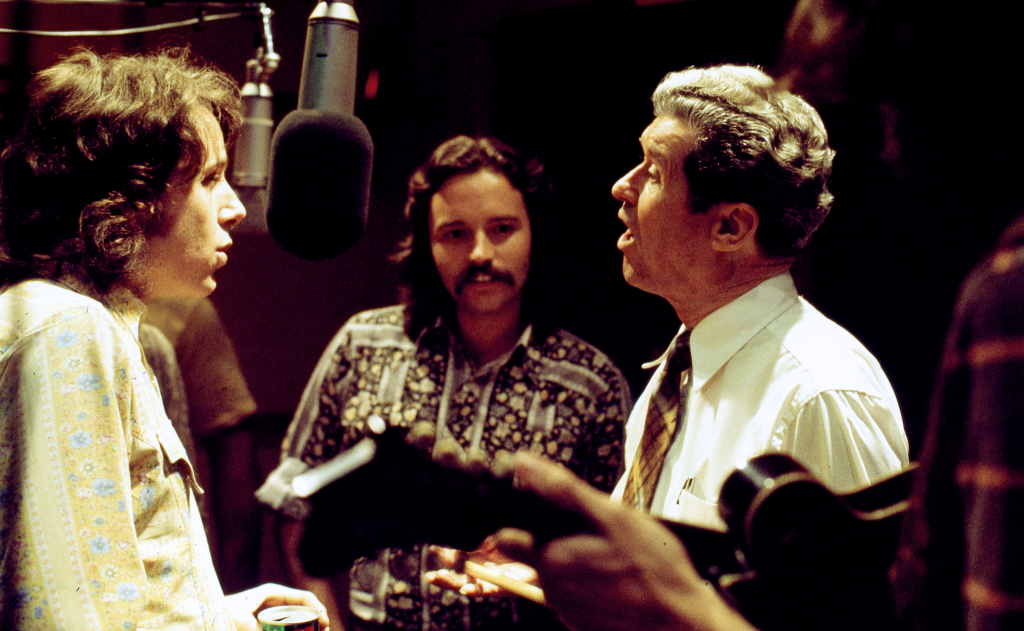
Additional classics included the fiery instrumental “Orange Blossom Special” with Vassar Clements blazing away on fiddle, Merle Travis’ “Nine-Pound Hammer” and the Hank Williams standards “Honky Tonkin’” and “Honky Tonk Blues.” Mother Maybelle Carter was featured on vocals, guitar and autoharp on the Carter Family favorites, “Keep on the Sunny Side,” “Wildwood Flower” and the title track.
Over the six days of recording, the Dirt Band stuck to their mission of capturing the styles of these iconic musicians as authentically as possible. “When we sat there in the studio and did ‘Tennessee Stud’ with Doc Watson, I said that this sounds like a classic old record,” McEuen recalls to Sounds Like Nashville. “That’s what we were trying to make. We did ‘Dark as a Dungeon’ with Merle Travis on lead vocal and you’re laughing to yourself and thinking, ‘I don’t want to go in there.’ It painted such a perfect picture. We wanted to do the best job that we could and everyone was great. And the album was recorded so well. Every song was done on either the first or second take, right to two-track masters. We needed to sound like one group as much as possible and I think we certainly did that.”
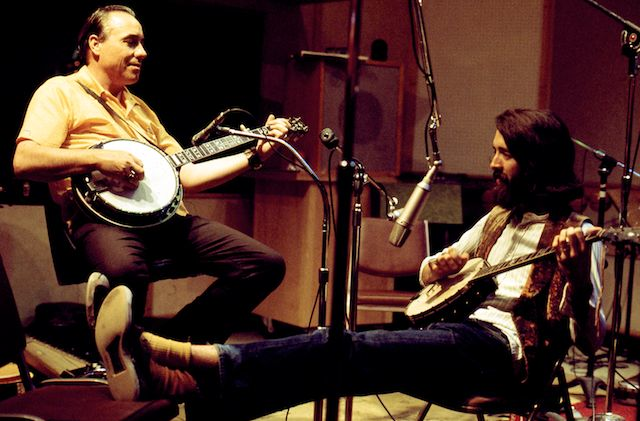
Will the Circle Be Unbroken was released in late 1972 and scored the rare feat of both commercial and critical success. It peaked at No. 4 on the Billboard country chart and drew raves from reviewers across the board. But Circle also caught on with college kids who snapped up the album, likely on the heels of the Dirt Band’s popularity. Word spread on college campuses about the record.
“Some FM rock stations around the country started playing cuts from it,” McEuen says. “I think ‘Tennessee Stud’ was one that was played a lot. I have heard so many stories from people who swore that they would never buy a country record – but they bought this one.” Young audiences discovered artists like Vassar Clements, Mother Maybelle Carter and Jimmy Martin, who were important not only to the country genre but all music in general.
As McEuen and his band mates hoped, Circle helped boost the fortunes of their mentors. “We heard that Mother Maybelle Carter was doing festivals,” McEuen notes. “Doc Watson told us later that his career had turned around because of the album. Vassar Clemens said that, ‘The Circle album gave me a career of my own.’ He had been known mainly as a sideman. Jimmy Martin said that people now knew his name where they didn’t before.”
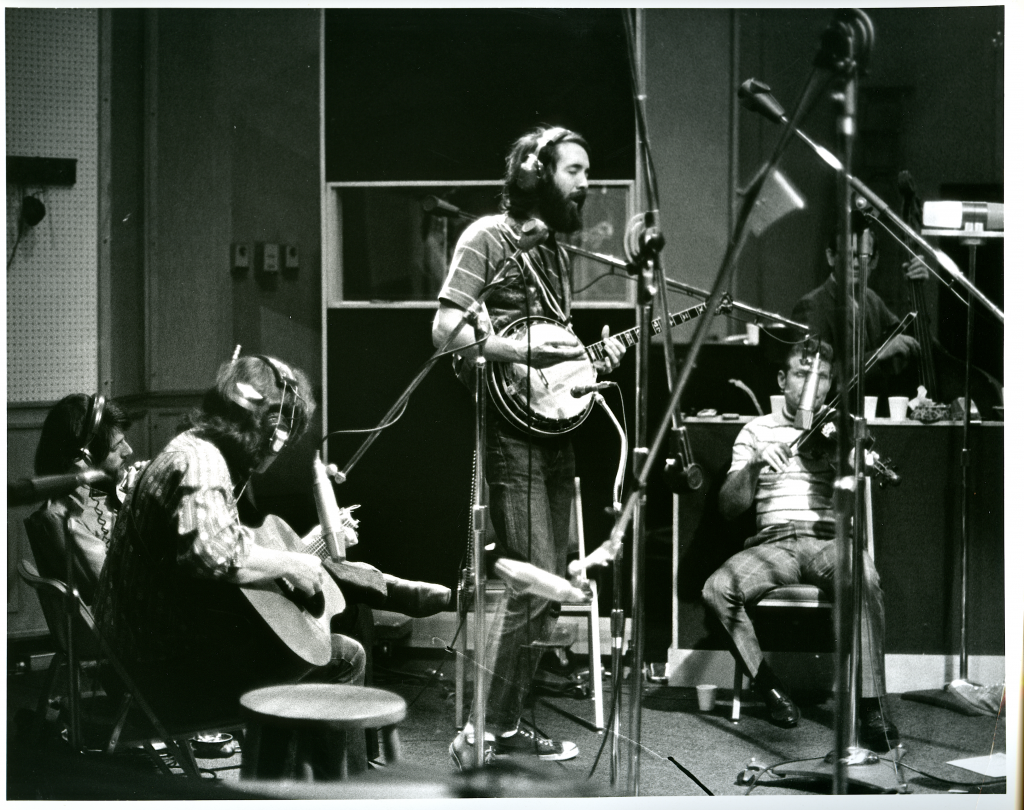
In turn, the record helped ramp up the Nitty Gritty Dirt Band’s reputation. “It’s given me a great feeling of accomplishment,” McEuen writes in his book, “to know that we contributed something to the careers of those greats, but of course, that was mutual. I most likely would not have had a career without their music.”
Will the Circle Be Unbroken is now considered a landmark album, both in its scope and influence through the years. It won a Grammy award and holds a place in the Library of Congress. The album was given prominent stature and considerable mention in the current Ken Burns PBS documentary series, Country Music.
“When we finished the album,” McEuen tells Sounds Like Nashville, “we obviously had no idea it would be this influential. We just felt that everyone had done a great job. Now, it continues to be popular. I know that it is the best combination of effort I have ever been a part of.”


